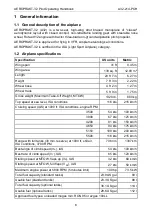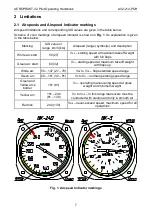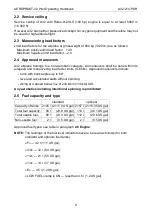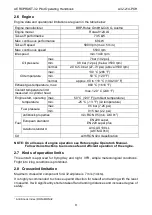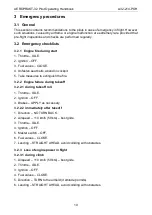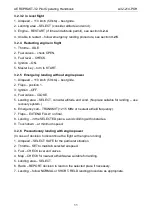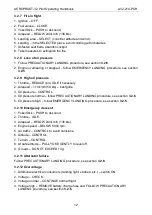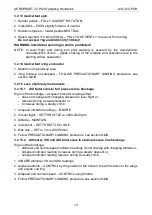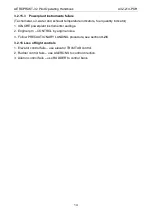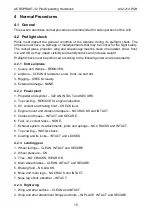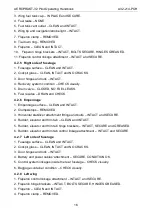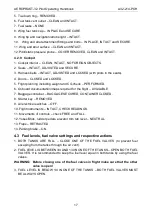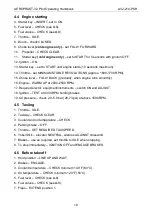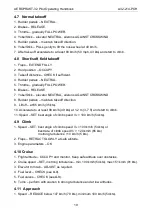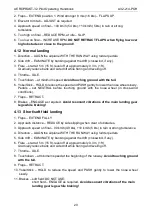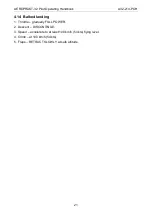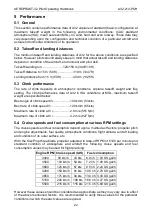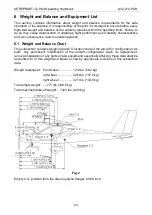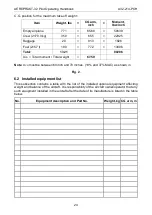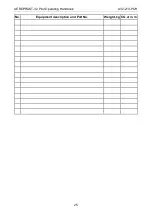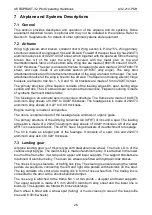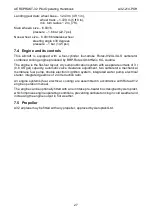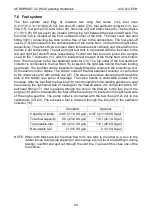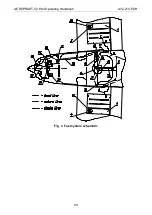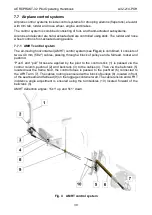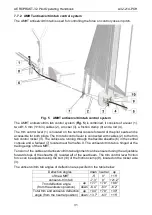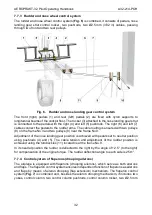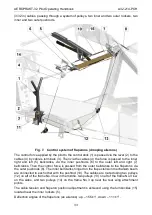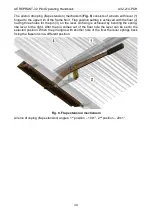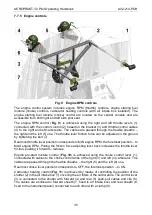
AEROPRAKT-32 Pilot Operating Handbook
A32-214-POH
20
2. Flaps
– EXTEND position 1. Wind stronger 8 m/s (16 kts) – FLAPS UP.
3. Elevator trim tab
– ADJUST as required.
4. Approach speed on final
– 100 km/h (54 kts), +10 km/h (5 kts) in rain or strong
turbulence.
5. Too high on final
– REDUCE RPM, at idle – SLIP.
6. Too low on final
– INCREASE RPM.
DO NOT RETRACT FLAPS when flying low over
high obstacles or close to the ground!
4.12 Normal landing
1. Direction
– ALIGN the airplane WITH THE RUNWAY using rudder pedals.
2. Side drift
– ELIMINATE by banking against the drift (crosswind, if any).
3. Flare
– start at 5 m (15 ft), level off at approximately 0.3 m (1 ft).
Gradually reduce bank and side drift while flaring and leveling off.
4. Throttle
– IDLE.
5. Touchdown
– at minimum speed.
Avoid touching ground with the tail.
6. Yoke/Stick
– HOLD to reduce the speed and PUSH gently to lower the nose wheel slowly.
Pedals
– set NEUTRAL before touching ground with the nose wheel (in cross-wind
conditions).
7. Flaps
– RETRACT.
8. Brakes
– ENGAGE as required.
Avoid resonant vibrations of the main landing gear
legs while braking!
4.13 Short/soft field landing
1. Flaps
– EXTEND FULLY.
2. Approach distance
– REDUCE by side slipping when clear of obstacles.
3. Approach speed on final
– 90 km/h (49 kts), +10 km/h (5 kts) in rain or strong turbulence.
4. Direction
– ALIGN the airplane WITH THE RUNWAY using rudder pedals.
5. Side drift
– ELIMINATE by banking against the drift (crosswind, if any).
6. Flare
– start at 5 m (15 ft), level off at approximately 0.3 m (1 ft).
Gradually reduce bank and side drift while flaring and leveling off.
7. Throttle
– IDLE.
8. Touchdown
– at minimum speed at the beginning of the runway.
Avoid touching ground
with the tail.
9. Flaps
– RETRACT.
10. Yoke/Stick
– HOLD to reduce the speed and PUSH gently to lower the nose wheel
slowly.
11. Brakes
– soft field: DO NOT USE;
short field
– ENGAGE as required.
Avoid resonant vibrations of the main
landing gear legs while braking!

